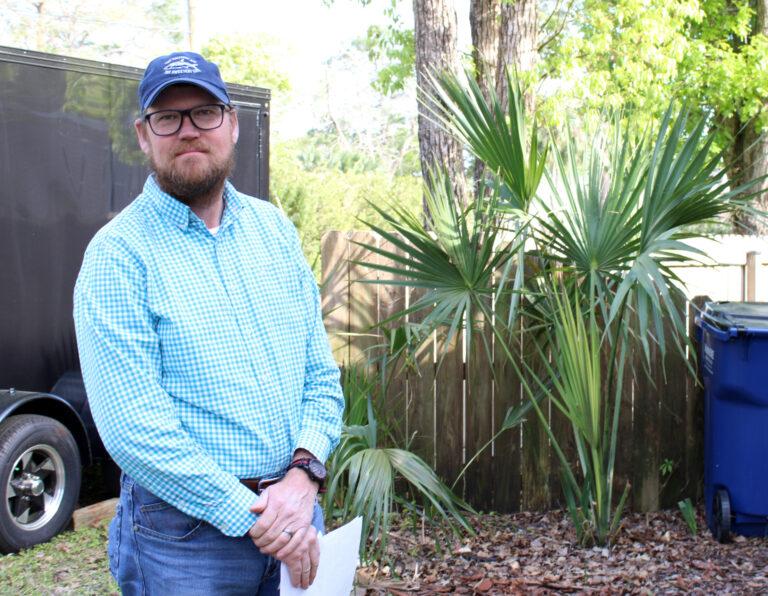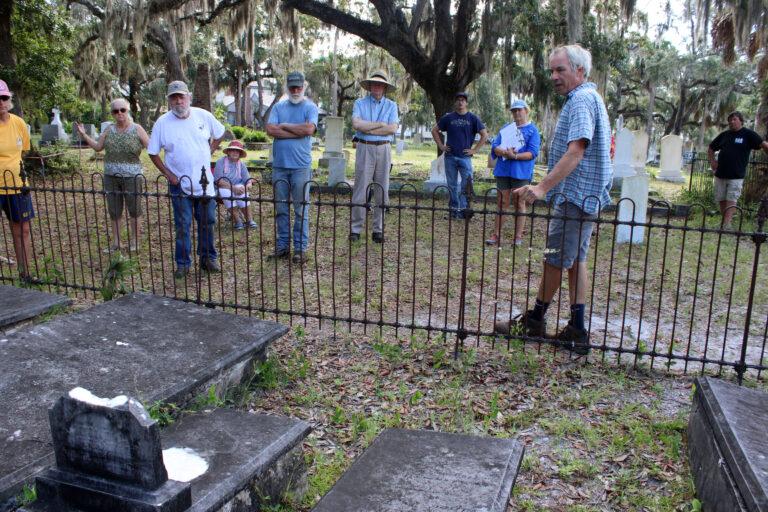Eyebrows raised by possible dog poisonings
In a criminal case, they call it “reasonable doubt” and you have to get beyond it.
In civil matters, it’s called “a preponderance of the evidence” and you have to have a whole mess of it.
Neither is the same as 100 percent, iron-clad, take-it-to-the-bank certainly, but it makes you wonder.
It’s pretty safe to say that somewhere in that murky realm of uncertainty, there’s reason to suspect that whether accidentally or on purpose, dogs may have been poisoned in Apalachicola.
“We may not have definitive proof (but) there’s a very strong suspicion that there have indeed been a few,” said Michael Northrop, owner and practice manager of the Apalachicola Bay Animal Clinic in Eastpoint, where his wife, veterinarian Dr. Grayson Wallace Northrop, and now two other colleagues, Dr. Regina Howton and Dr. Victoria Lyon, handle the prevention and treatment of animal illnesses and injuries.
“We don’t have any definite verifiable 100 percent dog poisoning,” said Michael Northrup. “But there have been a number of suspicious cases.”
The fact that dogs’ symptoms of internal bleeding are similar to that found in canines that contract parvo. a highly contagious virus that can affect all dogs, with unvaccinated dogs and puppies under four months most at risk, these deaths could be chalked up to natural causes.
And indeed, an afflicted dog last week tested positive for parvo.
But, “there were a couple cases prior where there was no definitive diagnosis, but one was negative for parvo and others were fully vaccinated for parvo,” said Michael Northop. “The odds of getting it from our vaccine is incredibly low.”
In using the phrase “our vaccine,” he is referring to that dispensed by a licensed veterinarian, and not an off-brand bought for retail by a pet owner.
The uncertainty surrounding the dogs’ deaths led the clinic to speak informally with Sheriff A.J. Smith. They shared with the sheriff rumors that a mystery piece of meat had showed up in somebody’s yard, but so far no crimes have been uncovered.
“Two dogs in a day or two of each other is suspicious,” said Michael Northrop. “We’re vigilant in watching.”
Smith went on Facebook to lean towards parvo being the problem people need most to be concerned with, and shared advice on when to get dogs vaccinated and what to look out for.
Dr. Northrup said that in the event a dog contracts parvo, it can be treated with vitamin K, an anticoagulant, and that can be successful if done early enough. “But if they’re bleeding profusely, sometimes we can’t control the bleeding fast enough,” she said.
While rat poisons and antifreeze are commonly known to be poisonous to dogs, even some chemicals, such as the sweetener xylitol, can be toxic to dogs.
Dr. Northrup advised pet owners to keep abreast of their animal’s regular veterinary care by getting their information from Veterinary Partner, at veterinarypartner.vin.com.

![Eastpoint veterinarian Dr. Grayson Wallace Northrop with a litter of puppies [ Michael Northrop | Contributed ]](https://franklincounty.news/wp-content/uploads/2023/03/APA031623_news_dogpoisons-scaled.jpg)


Meet the Editor
David Adlerstein, The Apalachicola Times’ digital editor, started with the news outlet in January 2002 as a reporter.
Prior to then, David Adlerstein began as a newspaperman with a small Boston weekly, after graduating magna cum laude from Brandeis University in Waltham, Massachusetts. He later edited the weekly Bellville Times, and as business reporter for the daily Marion Star, both not far from his hometown of Columbus, Ohio.
In 1995, he moved to South Florida, and worked as a business reporter and editor of Medical Business newspaper. In Jan. 2002, he began with the Apalachicola Times, first as reporter and later as editor, and in Oct. 2020, also began editing the Port St. Joe Star.